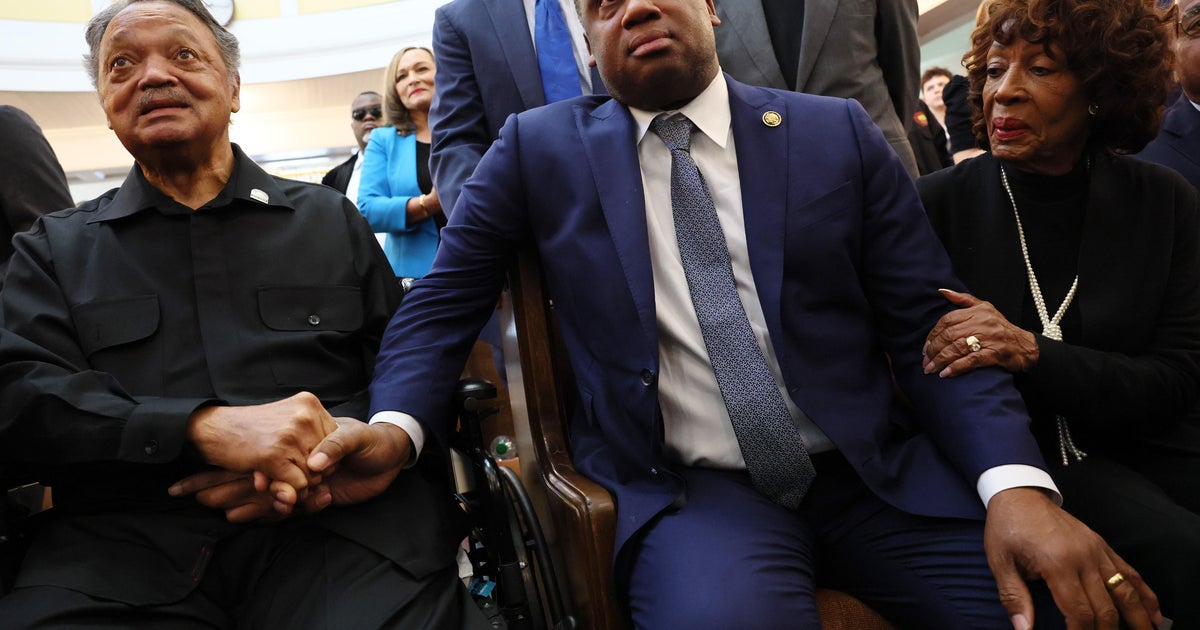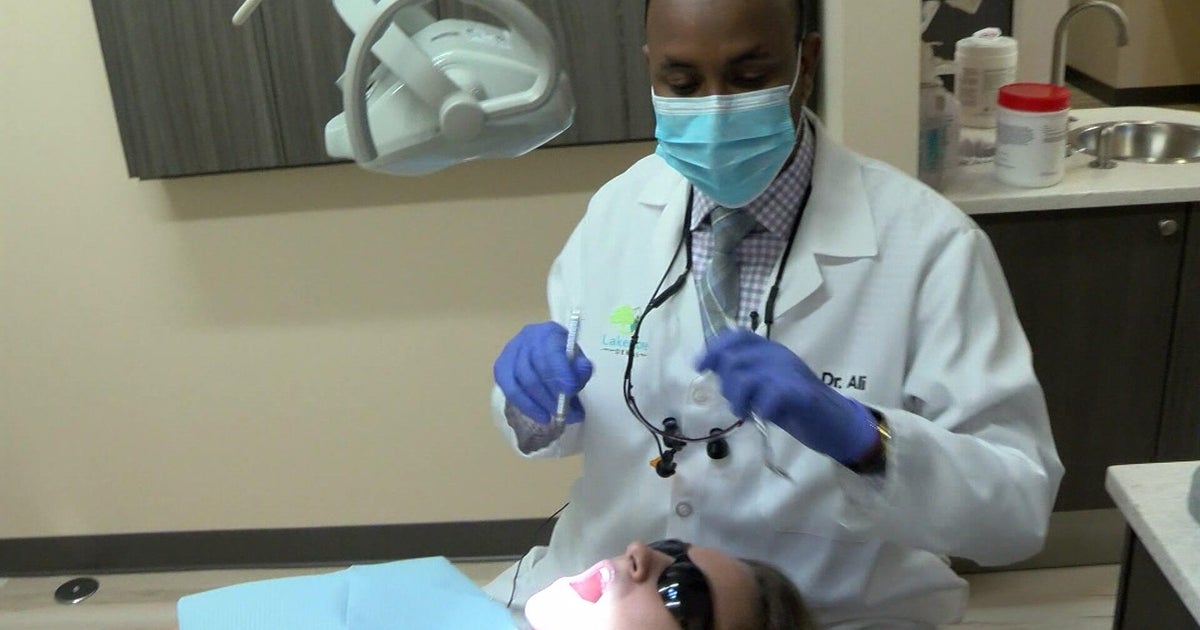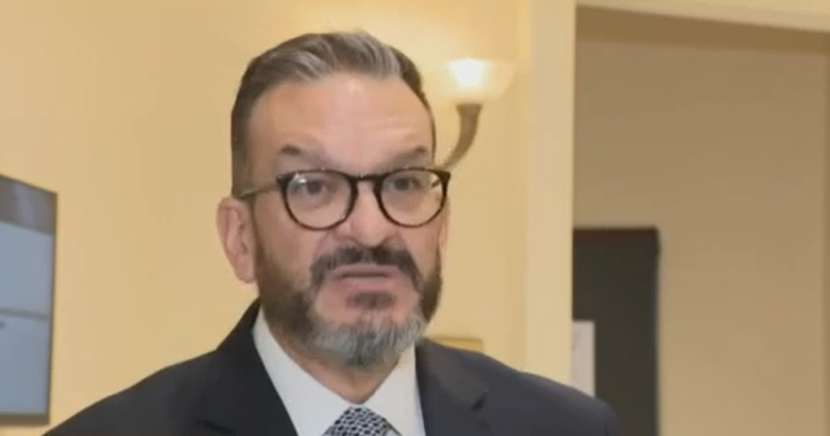DeFede: Jackson CEO Ill-Suited For Job
MIAMI (CBS4) -- In her letter announcing that she was stepping down as president and chief executive officer for Jackson Memorial Hospital, Eneida Roldan decried "the politically charged environment" that surrounded her 18 month tenure.
"It has been the unconditional support of the JHS [Jackson Health System] family, my personal ties to this great institution and seeing the results of great teamwork that have given me the strength to withstand these challenging months under very hostile conditions," she wrote.
And therein lies just one of her problems. Bemoaning Miami as being "politically charged" is like complaining that summers in South Florida are too hot and humid. That's just the way things are. Politically charged is a given.
Miami politicians can sniff out weakness the way sharks smell blood in the water and Roldan was weak from the start. Roldan was not chosen to be a strong, take charge leader. The cabal within the Public Health Trust who engineered her selection chose her because she was weak. They chose her because they knew they could control her and that she would allow them to continue taking care of their friends, business associates and relatives.
Which is not to say that Roldan was corrupt or dishonest – she wasn't? Roldan was simply supposed to be the genial face of the hospital. A kindly presence that could appear before the Chamber of Commerce and other community groups and speak with passion and pride about the hospital she loves.
On paper Roldan's qualifications always seemed lacking. Her previous experience was running Pan American Hospital, a 146-bed facility off Red Road which employed a few hundred people. In Jackson, Roldan would now be overseeing the third largest public hospital system in the country. Jackson Health System, as it's formally known, has more than 1,500 beds and 12,000 employees spread out across three hospitals (Jackson Main, Jackson North, and Jackson South). She would also be responsible for the Ryder Trauma Center, the Holtz Children Hospital and an array of clinics across the county.
When concerns were raised about her ability to lead such a massive organization, her band of supporters on the Public Health Trust would say, with just a hint of condescension, that they would get Roldan a strong chief operating officer to actually run the hospital
When her appointment was announced it was greeted with an immense sense of community pride. Roldan was a product of Miami, having graduated from the University of Miami and received her medical training at Jackson. Now she would be the hospital's first female CEO as well its first Cuban-American leader.
"With my connections to this community, I think I can bring together the whole group of stakeholders for a common cause," she told the Miami Herald when she was selected.
But then, just a few short months into her tenure, the economic bottom fell out of the hospital with the discovery of a $244 million hole in her budget.
To her credit, Roldan didn't try to hide the hospital's financial problems. While her predecessors had played a shell game with the budget, papering over the deficit through accounting slight of hand, Roldan sounded the alarm.
Six months into her reign, she announced the hospital was nearly bankrupt and may not be able to make payroll much longer. Vendors were no longer being paid in a timely manner, she admitted, and layoffs were on the horizon.
Jackson was now facing arguably its greatest crisis in decades, and all eyes were on Roldan. And it soon became apparent she had neither the skills nor the experience to handle this critical moment.
Roldan announced she was designing a proposal to rescue the hospital. She worked around the clock with her staff and in March she presented her recovery plan.
She said she intended to lay off nearly 4,500 employees, close Jackson's hospital in the south end of the county, close Jackson's hospital in the north end of the county, and gut an array of programs regardless of whether they were profitable or not.
"I can not say this enough, tough decisions like this are the right choice if we are going to fulfill our mission and keep Jackson Health a sustainable and stable organization," Roldan told stunned members of the Public Health Trust. "Of course this plan is controversial. There will be push back. There will be alternative ideas and those who want more time. But we are running out of time."
That "recovery plan" was the beginning of the end of Roldan's term as Jackson's president and CEO.
Roldan decided to play what amounted to a game of chicken. She threatened a doomsday scenario which she hoped would spur the unions to offer wage concessions. At the same time, she was attempting to blackmail the county commission to either bail out the hospital with cash or lose the satellite hospitals in the north and south end of the counties that commissioners believed were vital to the community.
Just as troubling, her recovery plan showed she didn't understand the problem. There was an immediate problem of pulling enough money together to be able to make payroll and pay vendors. And then there was the long-term problem of making the hospital financially sustainable.
Roldan opted instead to just start laying off people and closing facilities as a way to deal with the short-term cash flow problems without understanding what it would mean to the hospital in the long run.
There was no way the Public Health Trust, the county commission, the county manager, or the county mayor would allow any of Roldan's proposals to go through.
As one senior county official said to me at the time: "This is the plan we have been waiting for? This is the plan she took months to draft and present? This is the best that she could do?"
From that moment on, Roldan was on borrowed time. Having lost confidence in Roldan, every public official with a stake in Jackson's future started to micromanage her every move.
The mayor and the county commission placed the hospital under "management watch" and sent a crew of county administrators to the hospital to keep track of what Roldan was doing.
In her letter this week announcing that she was stepping down, Roldan complained that she found herself "encountering a new level of scrutiny and hostile work environment where my management decisions are constantly second-guessed." She noted that she was now "professionally accountable to 30 individuals: Public Health Trust, The Mayor, The Board of County Commissioners and Manager."
If Roldan had put forth an actual recovery plan back in March, she might have been given more time to deal with the crisis. As it was, Roldan, with the help of those 30 individuals, did make progress in turning Jackson around. The deficit was reduced to just $90 million this year and the hospital made great strides in collecting money it was owed.
Roldan has also cleaned house at the hospital, replacing nearly every senior administrator inside the hospital.
Now it's Roldan's time to go and once again the Public Health Trust will have to select a new CEO. But unlike the quiet process they used 18 months ago to select Roldan, there will be a lot noise and attention surrounding this appointment. The Mayor and the Commission will need to make sure that the Trust does their job right this time.
The Trust needs to do a national search and find a CEO who can turn Jackson around; someone who understands how large safety net hospitals operate.
The community does not need another sentimental favorite or friendly persona, we need someone who knows exactly what they are doing and won't be intimidated by Miami's politically charged environment. Because in Miami, it's not just the heat, it's the stupidity that will really get you.







